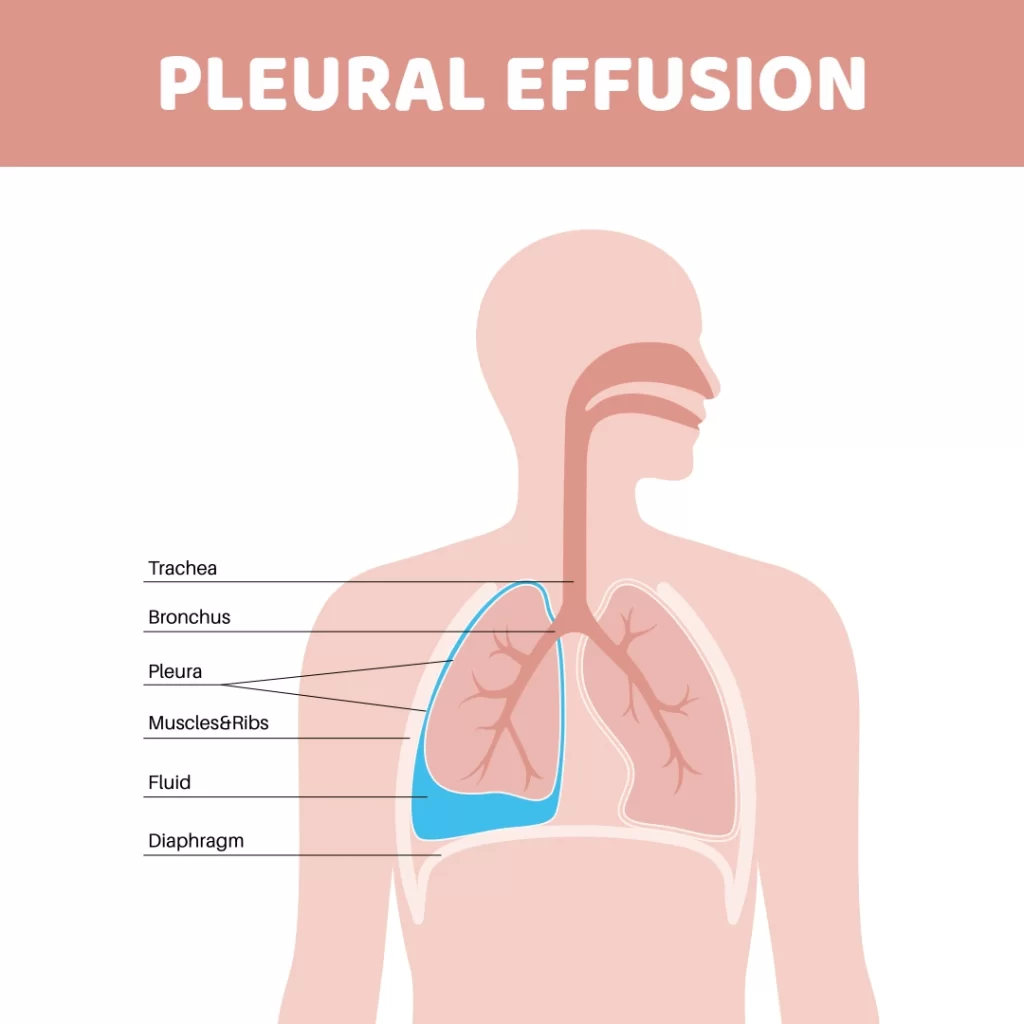Pleural Effusion
Pleural Effusion in Children:
- Definition:
Pleural effusion is the accumulation of fluid in the pleural space, which is the area between the lungs and the chest wall.
Causes of Pleural Effusion in Children:
- Pneumonia:
- The most common cause of pleural effusion in children, leading to what is known as parapneumonic effusions.
- In some cases, the effusion may become infected, forming empyema (pus in the pleural space).
- Tuberculosis:
- A significant cause of pleural effusion in India and other regions with high rates of tuberculosis.
- Other Causes:
- Cardiac Problems: Congestive heart failure can lead to fluid accumulation.
- Nephrotic Syndrome: A kidney disorder causing excessive fluid retention.
- Lymphomas: Cancers affecting lymphatic tissue.
Ewing’s Sarcoma: A rare type of cancer that can occur in bones or soft tissues.

Symptoms of Pleural Effusion in Children:
Children with pleural effusion may present with various symptoms, including:
- Fast Breathing: Increased respiratory rate due to difficulty in breathing.
- Difficulty in Breathing: Shortness of breath or respiratory distress.
- Chest Pain: Discomfort or pain in the chest area.
- Fever: Possible indication of infection.
- Cough: May be present, especially if pneumonia is the underlying cause.
- Weight Loss: Can occur with chronic conditions such as tuberculosis or cancer.
Diagnosis of Pleural Effusion in Children:
- Clinical Evaluation:
- If symptoms and examination findings suggest fluid accumulation, further investigations are needed.
- Imaging Studies:
- Chest X-ray: To confirm the presence of pleural effusion.
- Ultrasound Examination: Provides more detailed information about the amount and nature of the fluid.
- Thoracocentesis:
- If pleural fluid is confirmed, a procedure called thoracocentesis may be performed to obtain a sample of the fluid.
- A small needle is inserted under local anesthesia to collect 5-10 ml of pleural fluid for laboratory analysis.
- Laboratory Analysis:
- The pleural fluid is analyzed for the presence of cells, microorganisms (bacteria, tuberculosis), proteins, and sugar levels to determine the cause.
Treatment of Pleural Effusion in Children:
The treatment approach depends on the underlying cause of the pleural effusion:
- Antibiotics:
- Required for 7-10 days if pneumonia is the cause.
- Anti-Tubercular Medicines:
- Necessary for children diagnosed with tuberculosis-related pleural effusion.
- Fluid Removal:
- If the effusion is large, it may need to be drained.
- This can be done using a syringe and needle (thoracocentesis) or, in some cases, by inserting a chest tube for continuous drainage.
